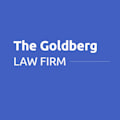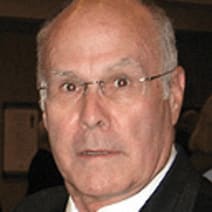Top University Heights, OH Medicare Fraud Lawyers Near You
Dedicated Criminal Defense Attorney Aggressively Fighting for Your Rights!!!
Free Consultation
Our nationwide team of defense lawyers includes a former U.S. Attorney, four former Federal Prosecutors, two former FBI agents and two former Army JAGS.
Free Consultation
Virtual Appointments
Nobody Talks. Everybody Walks. Just Call Me.
Free Consultation
In Trouble? Free Consult. Former Prosecutor & Team Former Federal Agents. Call/Text 24/7. Immediate Response Guaranteed!
Se Habla Español
Free Consultation
Virtual Appointments
Top Rated Successful Attorney More Than 400 Jury Trials, Call Jim Kersey to Discuss Your Case Directly with Him
Se Habla Español
Fed Trouble? Free Consult. Former Prosecutor & Team Former Federal Agents. Call/Text 24/7. Immediate Response Guaranteed!
Se Habla Español
Free Consultation
Virtual Appointments
25825 Science Park Drive, Suite 200, Beachwood, OH 44122
Assisting with Medicare Fraud issues in University Heights and across Ohio.
Se Habla Español
Free Consultation
1360 E. 9th St., IMG Bldg., Suite 600, Cleveland, OH 44114
Need help with Medicare Fraud in Ohio? James Monroe Kersey, Attorney at Law helps clients in the University Heights area.
Se Habla Español
127 Public Square, Suite 3510, Cleveland, OH 44114
600 Superior Avenue East, Fifth Third Bldg., Suite 1300, Cleveland, OH 44114
803 E Washington St, Suite 110, Medina, OH 44256
127 Public Square, Suite 2000, Cleveland, OH 44114
200 Public Square, Suite 3500, Cleveland, OH 44114
1400 Fifth Third Center, 600 Superior Avenue East, Cleveland, OH 44114
1000 Key Tower, 127 Public Square, Cleveland, OH 44114
127 Public Square, Suite 1600, Cleveland, OH 44114
8160 Norton Parkway, Mentor, OH 44060
2012 West 25th Street, Suite 701, Cleveland, OH 44113
IMG Building, 1360 E. 9th St., Suite 600, Cleveland, OH 44114
600 Superior Ave. East, Suite 1400, Cleveland, OH 44114
600 Superior Avenue, E, #1300, Cleveland, OH 44114
100 Park Place, Chagrin Falls, OH 44022
1231 Superior Ave, Suite 200, Cleveland, OH 44114
18500 Lake Road, Suite 300, Rocky River, OH 44116
Leader Building, Suite 800, 526 Superior Avenue East, Cleveland, OH 44114
1300 E 9th St, Suite 1400, Cleveland, OH 44114
1375 East Ninth Street, One Cleveland Center, 10th Floor, Cleveland, OH 44114
One Cleveland Center, 29th Floor, 1375 East Ninth Street, Cleveland, OH 44114-1793
1100 Superior Avenue E, Suite 1750, Cleveland, OH 44114
3401 Tuttle Road, Suite 200, Cleveland, OH 44122
55 Public Square, Suite 2200, Cleveland, OH 44113
University Heights Medicare Fraud Information
Lead Counsel independently verifies Medicare Fraud attorneys in University Heights and checks their standing with Ohio bar associations.
Our Verification Process and Criteria
Ample Experience
Attorneys must meet stringent qualifications and prove they practice in the area of law they’re verified in.Good Standing
Be in good standing with their bar associations and maintain a clean disciplinary record.Annual Review
Submit to an annual review to retain their Lead Counsel Verified status.Client Commitment
Pledge to follow the highest quality client service and ethical standards.
What Constitutes Medicare Fraud?
Medicare is a national health insurance program, administered under the Centers for Medicare and Medicaid Services (CMS). Medicare covers many of the healthcare expenses of enrollees. Uncovered services and remaining costs may be covered by private insurance or other government benefit programs. To be eligible under Medicare, the individual has to meet one of the following requirements:
- Age 65 or older and a U.S. citizen, or LPR for 5 continuous years with a qualifying spouse or ex-spouse
- Under 65 with a disability and have been receiving SSDI or other disability benefits for a qualifying period of time
- People with End-Stage Renal Disease (ESRD) receiving continuing dialysis
Medicare fraud involves making false claims or fraudulent misrepresentations for Medicare health care benefit reimbursement. According to the Government Accountability Office, Medicare is vulnerable to fraud, with a low rate of Medicare claim audits. People accused of Medicare fraud can involve anyone involved in government healthcare benefit program, including:
- Doctors and medical providers
- Billing professionals
- Health care professionals
- Health care services companies
- Insurance companies
- Pharmaceutical companies
What Are Examples of Medicare Fraud?
Medicare fraud generally occurs between medical care providers and patients, vendors, or other doctors. There are several examples of medical billing fraud, anti-kickback violations, and financial gain through improper self-referral. Some common examples of Medicare fraud include:
- Billing for services that are not necessary
- Health care provider treatment for an undiagnosed condition
- Charging for an unnecessary expensive service
- Paying kickbacks for referrals
- Unbundling medical procedures
- Double billing or duplicate claims
- Up-coding
- Billing for medical services never provided
How is Medicare Fraud Determined?
There are several ways Medicare fraud can be identified. Suspected fraud can be reported by patients, healthcare providers, or even employees. Health care fraud cases can also be identified through computer analysis. CMS uses a Fraud Prevention System (FPS) to identify possible fraud. According to CMS, the FPS is a “state-of-the-art predictive analytics technology.”
The system assesses all Medicare fee-for-service claims to identify fraudulent claims and take administrative action. When patterns of inappropriate billing are identified, investigators conduct site visits, interview patients, and review medical records to identify fraud.
The Office of Inspector General (OIG) has a hotline for reporting potential fraud and Medicare abuse. Patients, co-workers, or employees may have an incentive for reporting fraudulent billing and may be eligible for whistleblower awards under some federal programs.
Is Medicare Fraud Civil or Criminal?
Medicare fraud charges can involve both civil and criminal laws and penalties. Federal health care fraud carries felony criminal charges. The penalties for a conviction of federal government fraud include up to 10 years in federal prison, or up to 20 if it resulted in serious bodily injury.
When a doctor refers a Medicare patient to another business or provider where the doctor has a financial interest, it may be a violation of the Physician Self-Referral Law, or the Stark Law. Civil penalties for illegal patient referrals include civil penalties, treble damages, and Medicare program exclusion.
The Anti-Kickback Statute is a criminal statute, with penalties including possible imprisonment for up to five years, fines, and exclusion from federal benefit programs.
The False Claims Act (FCA) provides for civil penalties where a doctor defrauds the federal government. The FCA also provides a reward system, and whistleblowers can recover up to 30% of the money recovered by the government.
Other penalties may include restitution, or paying back the victims of fraud. After a conviction for Medicare fraud, a doctor could also lose their medical license or be excluded from participating in Medicare or Medicaid. Medicare fraud may also involve other criminal violations, including:
- Identity theft
- Forgery
- Money laundering
- Wire fraud
- Insurance fraud
What if You Are Accused of Medicare Fraud?
Not all Medicare fraud criminal investigations involve criminal intent. There are a number of possible explanations or legal defenses when a doctor faces fraud allegations. In many cases, suspected fraud may be caused by simple mistakes or unclear rules, without any intention of fraud. A fraud attorney can review your case for a strategic defense, with possible defenses including:
- Accidentally putting in the wrong billing code
- Accidentally ordering extra diagnostic tests
- Billing employees did not have the proper training
- Patient claimed they did not already have a procedure or test
- Misspellings or unclear handwriting








